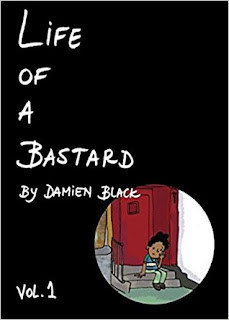Although physically blind, Janet Perez Eckles has been teaching thousands to see the best of life. “Because I lost my sight at 31 and endured the murder of my youngest son, along with the acquittal of the man responsible,” Janet says, “my life should’ve been a mess. But God gave me a message to showcase His power: His power at work to conquer fear and turn the deepest pain to a life rich with triumph and success.”
This triumph sparked Janet’s passion to help others overcome their own struggles. Without sight, but with insight, her inspiration fills the pages of her four books and keynote presentations. And at every local, regional, national or international event, Janet’s lively style captivates audiences as this inspiration dances into their hearts. Whether her messages are delivered in Spanish or English, they have been called “transformational.”
1. What
inspired you to write Simply Salsa: Dancing without Fear at God's Fiesta?
Not so much “what”
but rather, “who” inspired me to write. It was that woman who feels defeated by
the problems in life. She is close to giving up and feels overwhelmed by her
broken plans and heartache.
My passion is to
lift her up, help her see her potential and no matter what she’s facing, guide
her to a rich, triumphant life.
2. What
was the development process like?
Lots of
self-reflection to see what kind of a book I, myself would like to read.
Research
illustrations to blend with my own.
Review the notes,
letters and prayer request I receive to know what to address.
Choose the topics
that challenge women the most
And finally, write with
a blend of warmth and passion as if I were talking to my best friend.
3. What
was the hardest part about writing this book?
Making sure the
illustrations sang for my readers. Questions like these would usually barge in:
are the examples relevant? Is my story well illustrated? Are the insights
clear? Are the steps practical for anyone to follow?
Will the content
spark in my readers a desire to change?
4. What do you hope
readers will gain from your book?
A renewed perception
that their situation is not impossible, insurmountable or hopeless.
And as they see the
powerful way God turns trials to triumph, they would feel empowered and repeat
to themselves, “I know I can live in victory too.”
5. What
inspired you to be a writer?
The reactions to my
first book. I had written it as a story with the only thought of inspiring my
grandchildren. But when I received comments about how my book was impacting
women not only in the U.S. but also in Australia, England, and New Zealand, I
thought I might have something to say.
Thus, I continued
to write and after hundreds of magazine articles, 32 stories featured in
Chicken Soup for the Soul titles, I wrote Simply Salsa.
6. What
do you like best and what do you like least about being a writer?
I love the fact
that, being blind, God allows me to write (I operate my computer with a screen
reader). And as my readers learn about my complete blindness, they realize that
what you need is not so much physical sight, but a vision to overcome the
impossible.
I relish on each
finished piece because part of my soul sings through the lines. It’s a great
expression of what goes on in my heart.
And the hardest
thing is having the time to write about to many topics that rumble in my mind.
7. Who
are some of your favorite authors?
Francine Rivers, Max Lucado, Cecil Murphy, David Jeremiah, Carol Kent
8. If
your book would be turned into a movie, who would you imagine playing the part
of the main character? (Actor can be ANYONE, living or dead.)
Mary Tyler Moore
9. Are
you working on anything right now?
Yes, I’m constantly
writing blogs, my free inspirational newsletter, articles, and slideshows for
Ibelieve.com and crosswalk. And also I’m working on a book about success, what
does it really mean?
10. And,
finally, what do you think is in store for the future of Latino literature?
An explosion of
writing in all genres. Each providing opportunities for Latinas to speak their convictions,
to go higher, remove inhibitions and shout out the triumphant passion that
pulsates in the Latina heart.















